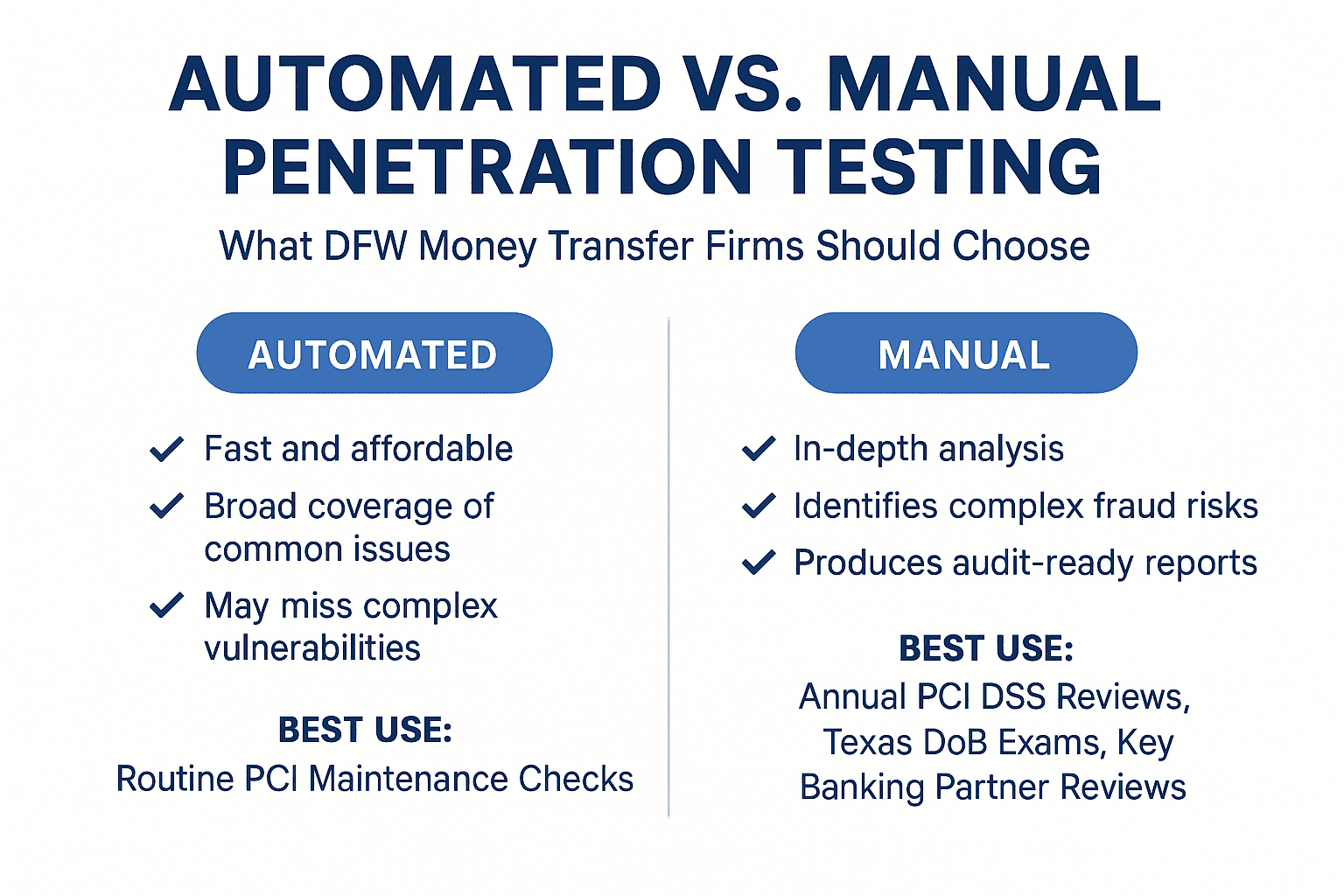
Why This Decision Matters in DFW
For money transmitters in Dallas–Fort Worth, compliance and trust are everything. A weak security posture can mean:
- Texas MSB license issues
- FinCEN penalties
- PCI DSS audit failures
- Or worst of all — loss of banking partners
We often hear the same question: “Do I need automated testing, or should I invest in a full manual pentest?” The answer depends on your goals — routine compliance vs. proving resilience against real-world fraud.
Automated Penetration Testing: Fast but Surface-Level
Automated pentesting uses tools to quickly scan for common issues: open ports, outdated software, weak configurations.
- Pros: Fast, affordable, broad coverage.
- Cons: Shallow. Misses complex vulnerabilities, produces false positives, limited business context.
📌 DFW Example: A Plano-based MSB ran automated scans and found “medium-severity” flaws. But in reality, those flaws could be chained into a critical risk. Automation alone didn’t show the bigger picture.
Best Use: Routine PCI maintenance checks, especially after system updates.
Manual Penetration Testing: Real-World Attack Simulation
Manual pentesting is where human testers think like attackers — chaining flaws, exploiting business logic, and testing your defenses under realistic conditions.
- Pros: Deep analysis, identifies complex fraud pathways, produces audit-ready reports.
- Cons: More time-intensive and higher upfront cost.
📌 DFW Example: A Fort Worth money transfer firm discovered through manual testing that weak teller logins + phishing could expose their entire transaction database. Fixing this saved their banking partnership.
Best Use: Annual PCI DSS reviews, Texas DoB examinations, or before onboarding with new banking partners.
Key Differences for DFW Firms
- Speed vs. Depth: Automated is fast but surface-level. Manual digs deep into fraud and compliance risks.
- False Positives vs. Actionable Reports: Automated tools flood you with noise. Manual pentests translate findings into bank- and regulator-friendly language.
- Cost vs. Risk: Automation is cheaper up front. Manual protects you from much costlier audit failures or fraud losses.
Hybrid Approach for Money Transfer Firms
The smartest DFW firms use both:
- Automated scans for ongoing PCI maintenance
- Manual pentests for audit cycles and banking partner reviews
This balance keeps costs manageable while ensuring compliance and real-world resilience.
Closing: Your DFW Pentesting Partner
At CyberCile, we help Dallas–Fort Worth money transfer firms:
- Run routine vulnerability scans for PCI upkeep
- Conduct manual pentests that satisfy Texas DoB examiners and partner banks
- Deliver reports in plain language for compliance officers and executives
👉 If you operate branches across Dallas, Plano, or Fort Worth, and want a security partner who speaks MSB compliance, let’s connect.
Schedule Your Automated + Manual Pentest Strategy Session https://calendly.com/cybercile/15min
